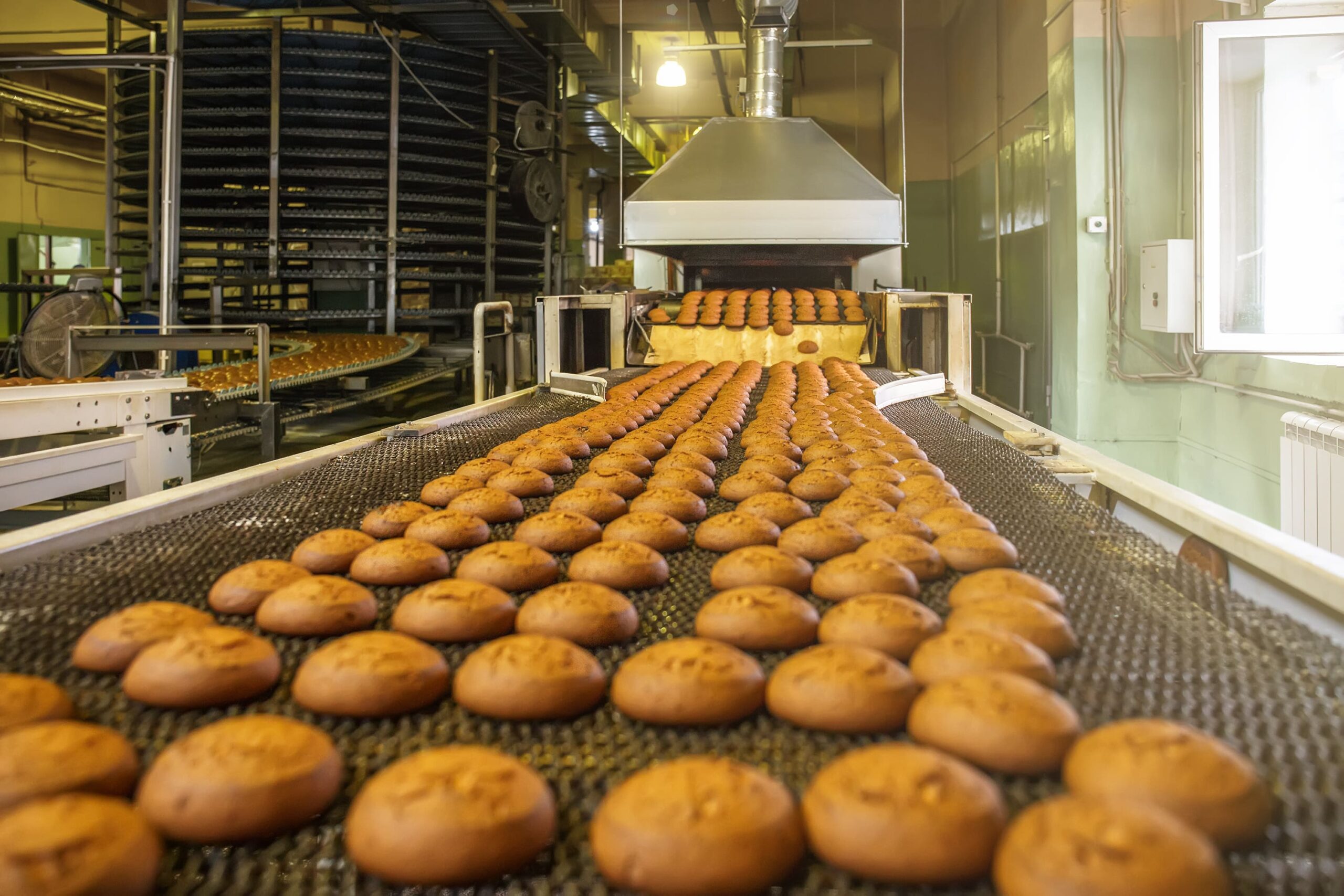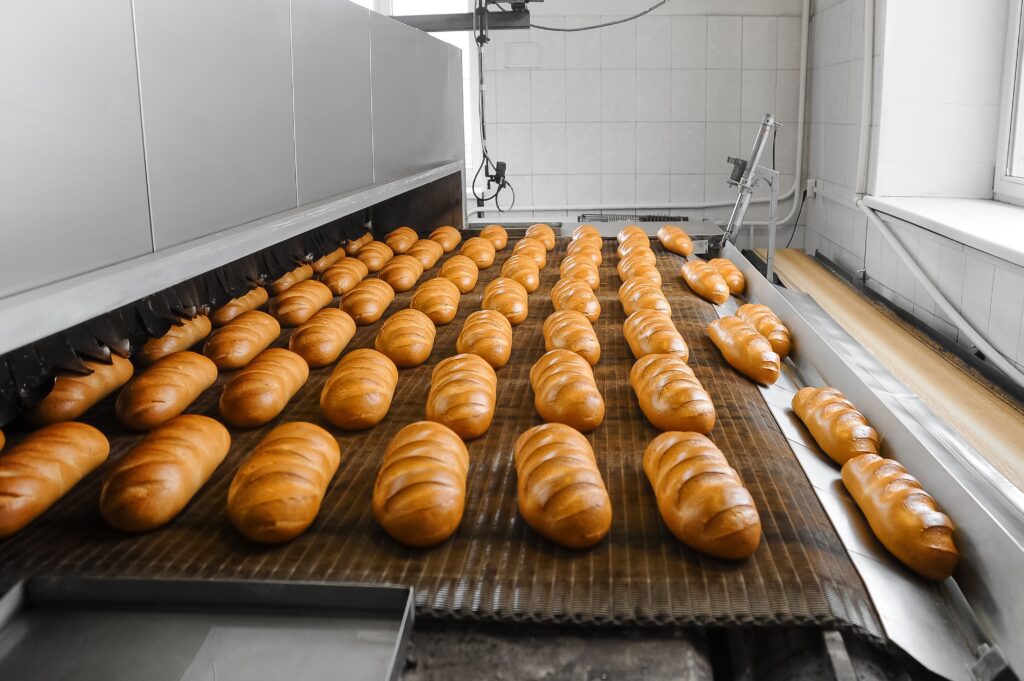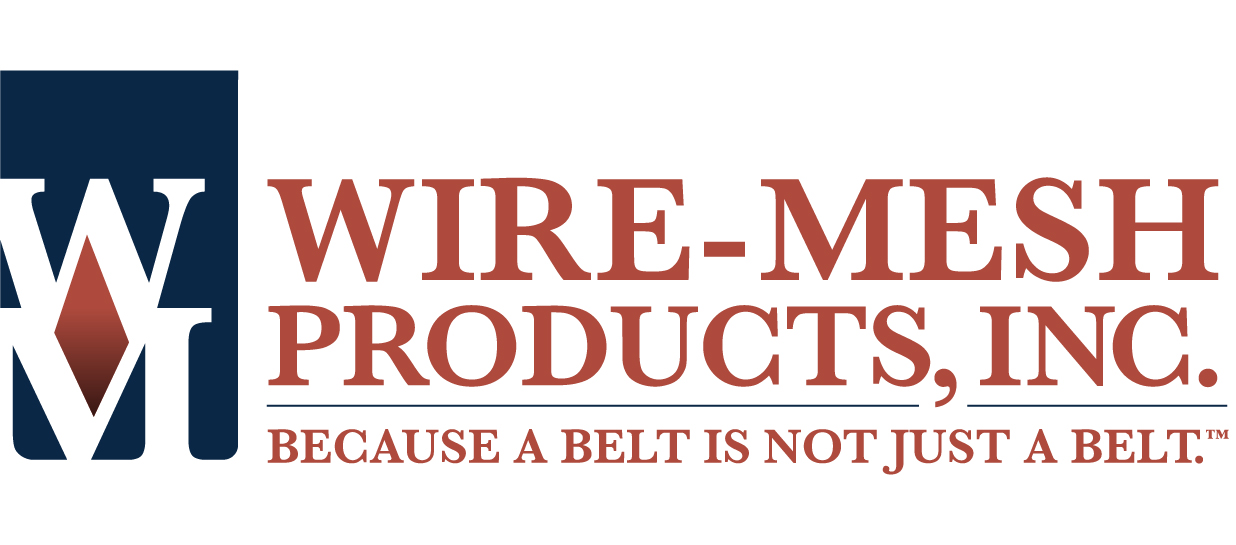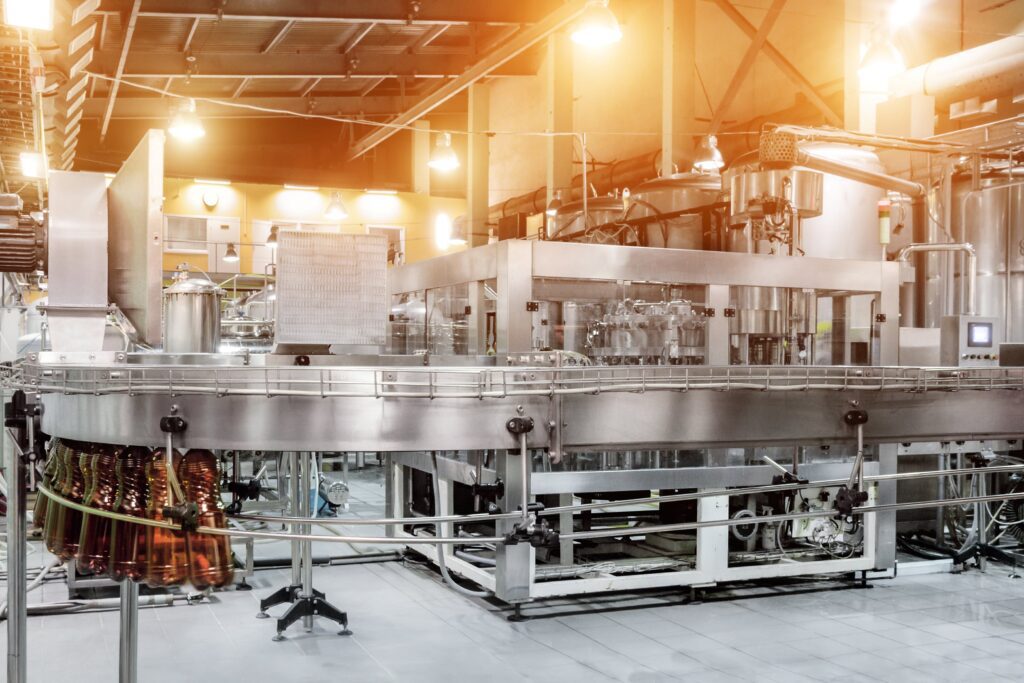
From pizza and bread to chips and candy, the only thing better than enjoying your favorite foods is being able to provide them to others. Food processing is one of the most prominent industries for conveyor belts.
However, in order to manufacture a range of food products, materials, or ingredients, companies need to understand which type of belt is best suited for their operation.
In this blog, we will discuss different types of food conveyor belts as well as what factors you should consider when selecting conveyor belts for the food industry.
How to Choose a Conveyor Belt for the Food Industry
The first part of learning how to choose the right conveyor belt for the food industry is understanding what considerations take precedence over others. Of course, price and design are critical; however, other considerations exist that should be taken into account. Below, we’ve listed some of the main concerns companies may have in the food processing industry as well as what proper food conveyor belts should include.
Long-Lasting
Long-term reliability is crucial when choosing a conveyor belt, especially in the food processing industry. If your food conveyor belt is damaged or stops working it can be detrimental to your company’s operation, wasting your time and money.
Trouble-Free
Once installed, food-grade conveyor belts should run smoothly. Improperly made belts can cause various issues resulting in lost time as employees troubleshoot the problem.
It’s important that your belt is designed, engineered and properly manufactured to meet the specific needs of your process. Doing so will improve output and reduce downtime without compromising the food’s quality.
Proper Tracking
A belt that wanders too far from side to side can result in a number of negative consequences for your oven’s operation, sometimes even causing the entire system to malfunction and shut down.
When installing a conveyor belt, it’s imperative that the rollers and frame are level and square. Additionally, the belt itself needs to be manufactured properly: square, in mesh, with very little run-out.
A significant advantage of using Wire-Mesh Products belts is that our team has higher quality standards than others so you can worry less about the belt itself. This is especially true with cleat or pinroll systems which require a higher level of precision.
Materials
The following is a list of the most common alloys used in the food processing industry:
- Steel
- Galvanized steel (steel coated with zinc)
- 430 magnetized steel
- 304 stainless steel (not magnetized due to chrome and nickel in the material)
- 316 stainless steel
The above list is not inclusive of all available materials but it covers the majority. The material used depends on both the product being handled as well as process conditions.
For example, 316 stainless steel should be used in very corrosive environments whereas steel or galvanized steel can be used for foods like tortillas and taco shells. The advantage of wire mesh is that it can be used where other materials don’t work.
Applications
When it comes to food processing conveyor belts, there are certain applications that some companies want or need to include in their operation. These can range from the way foods are cut to the way they are cooked.
For example, sheeter belts are used to take shaped food to the oven or fryer. The baking oven requires heat, which means no rubber or plastic can be used. Then, the food will be moved to yet another belt to be cooled.
Metal conveyor belts are typically found in heated areas where plastic or rubber belts would fail. Foods like potato chips and other fried snacks require metal conveyor belts that can withstand the variety of oils and temperatures used in the cooking process.
Have you ever seen the black hatch marks on the bottom of your favorite snack? These are called toast points and represent the belt weave pattern carrying the product through the oven.
Some companies are very particular about how these markings look. Wire-Mesh Products has experience working with top food manufacturers worldwide which allows our team to make these applications possible depending on each company’s needs.
3 Types of Food Processing Conveyor Belts
Unlike high-temperature industrial belts, food conveyor belts should be categorized according to type rather than temperature. Knowing which type of belt fits your needs is imperative to ensure your operation runs smoothly.
There are 3 main types of food processing conveyor belts: friction-driven, sprocket and pin roll driven, and chain-driven belts. Continue reading below to learn how these types differ.
1. Friction Driven Belt
Friction drive belts are among the most popular types of conveyor belts for food processing. The rotation of the belt is accomplished by tensioning it around two or more pulleys.
The surface friction between the belt and pulleys is enough for the drive pulley to transfer its torque efficiently to the belt. The belts require a lot of pressure and a good tracking system to achieve a smooth, continuous flow.
2. Sprocket & Pin Roll Driven Belt
Sprocket and pin roll driven belts are perfect for lightweight applications in temperatures under 190℉.
One of the most significant advantages of using these conveyor belts for the food industry is that they have a smaller diameter sprocket with teeth which prevents slipping. This also results in a positive drive for excellent tracking.
These belts should be made with great precision so the belt is matched perfectly to the sprockets. Wire-Mesh Products can match any sprocket, pinroll, or cleat provided.
3. Chain Driven Belt
Another popular type of conveyor belt for the food industry is the chain driven belt. These are driven using sprockets mounted on shafts. Similar to a bicycle chain, chain driven belts use the highest quality precision roller chains.
This makes them exceptional options for straight-line tracking, as well as those with inclines. Chain driven belts are known for being durable and able to handle heavy loads.

When learning how to choose a food conveyor belt, it’s important to return to the basics, but there’s no shame in asking for a little help or guidance along the way. At Wire-Mesh Products, we want to help you through the process.
That’s why when you call us, you’re guaranteed to talk to an expert directly. We’re equipped with a well-rounded knowledge of the food processing industry and are ready to give you help with any belt.




